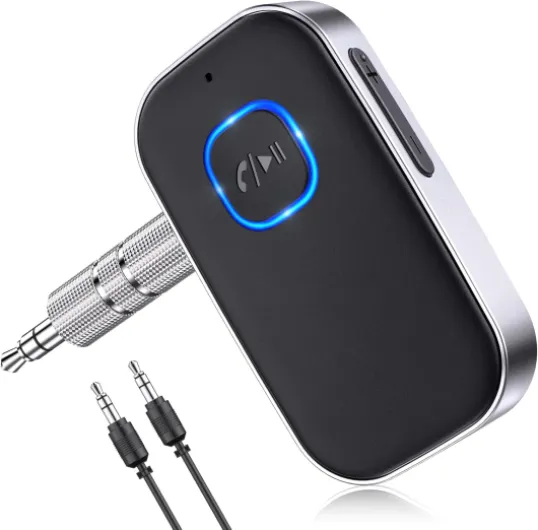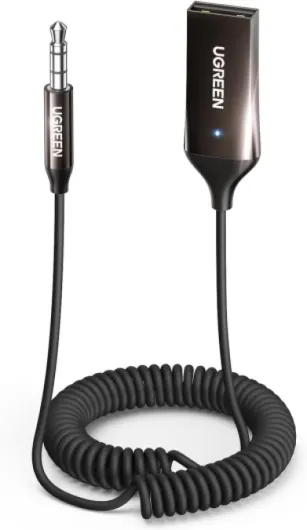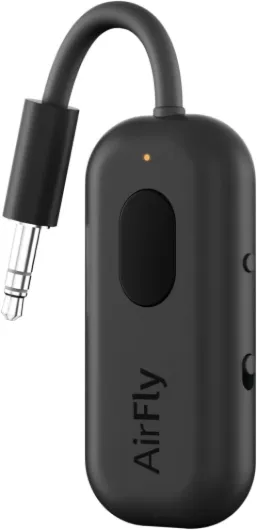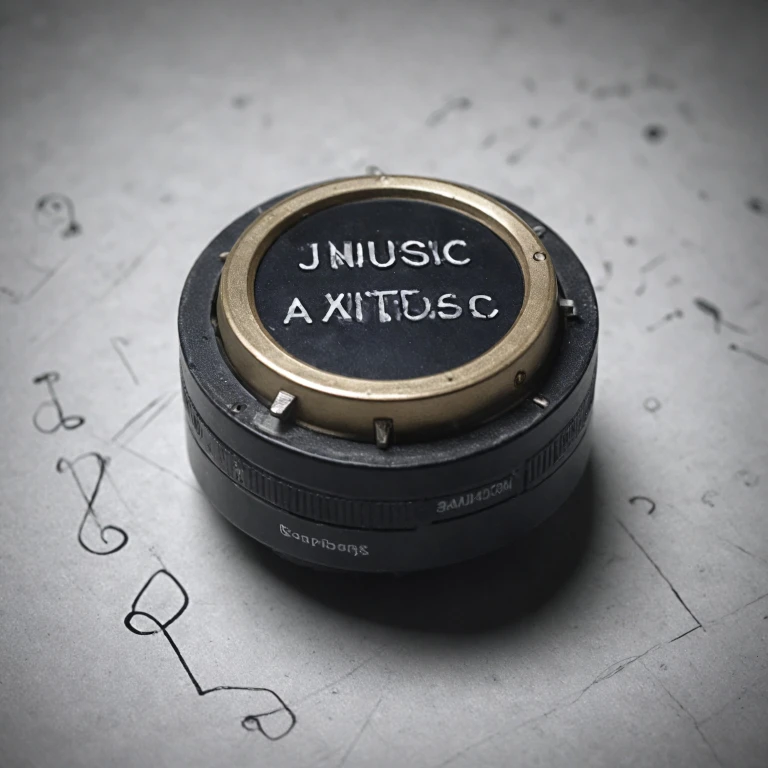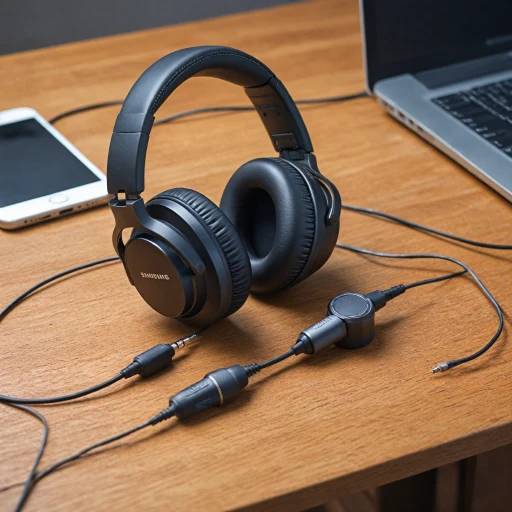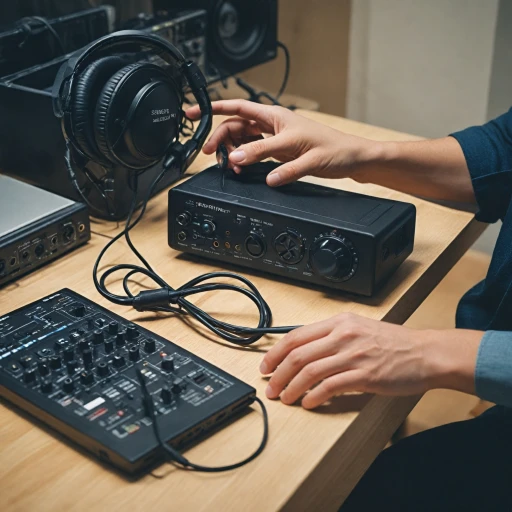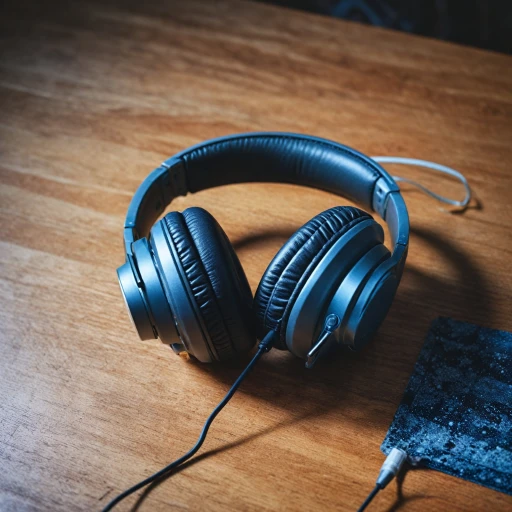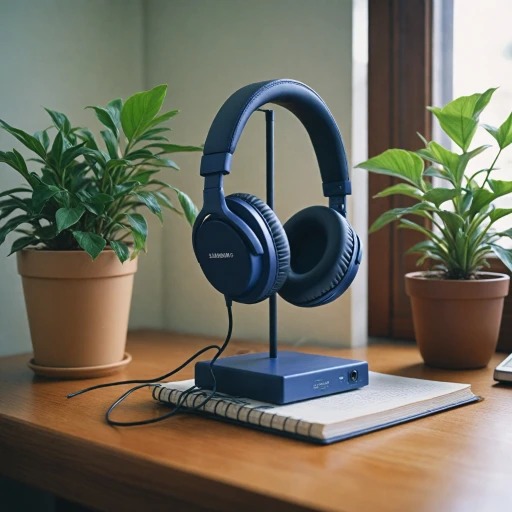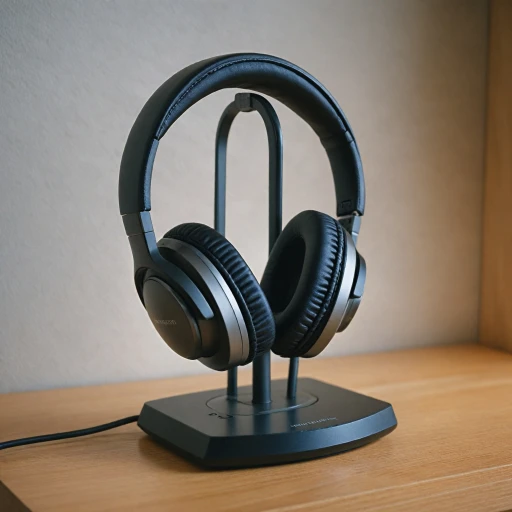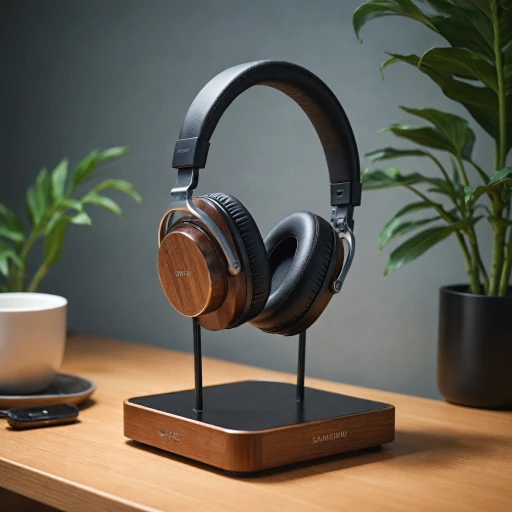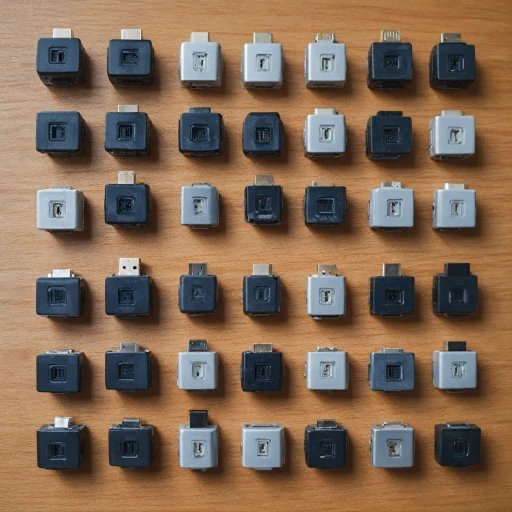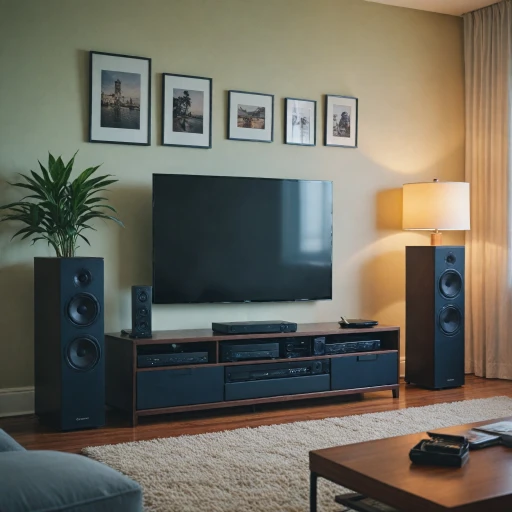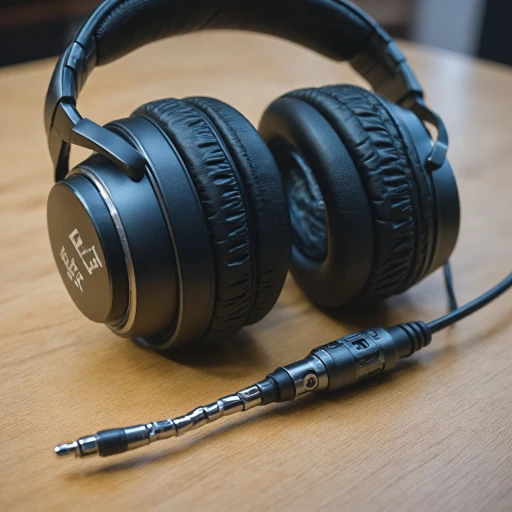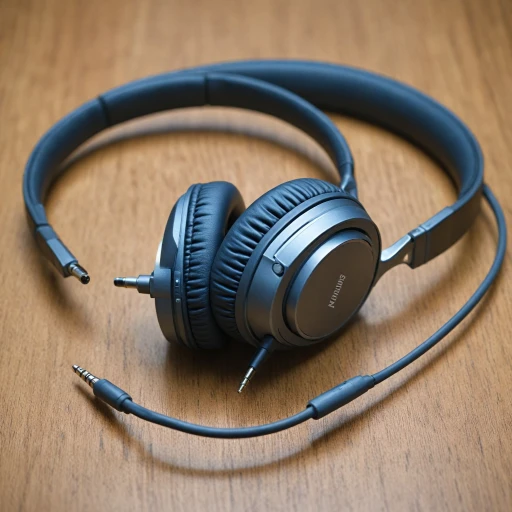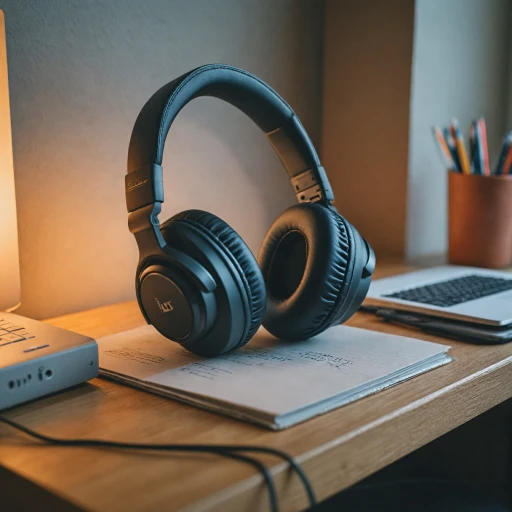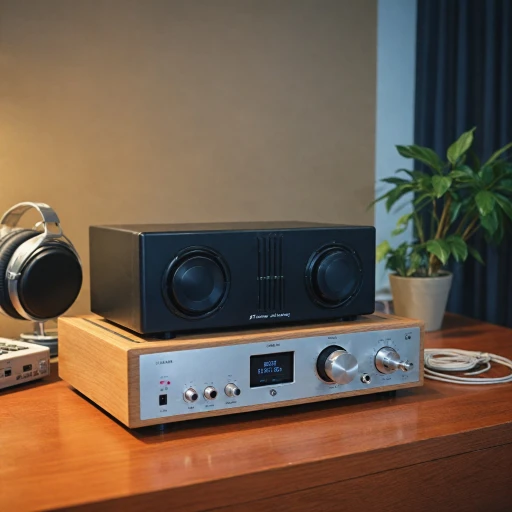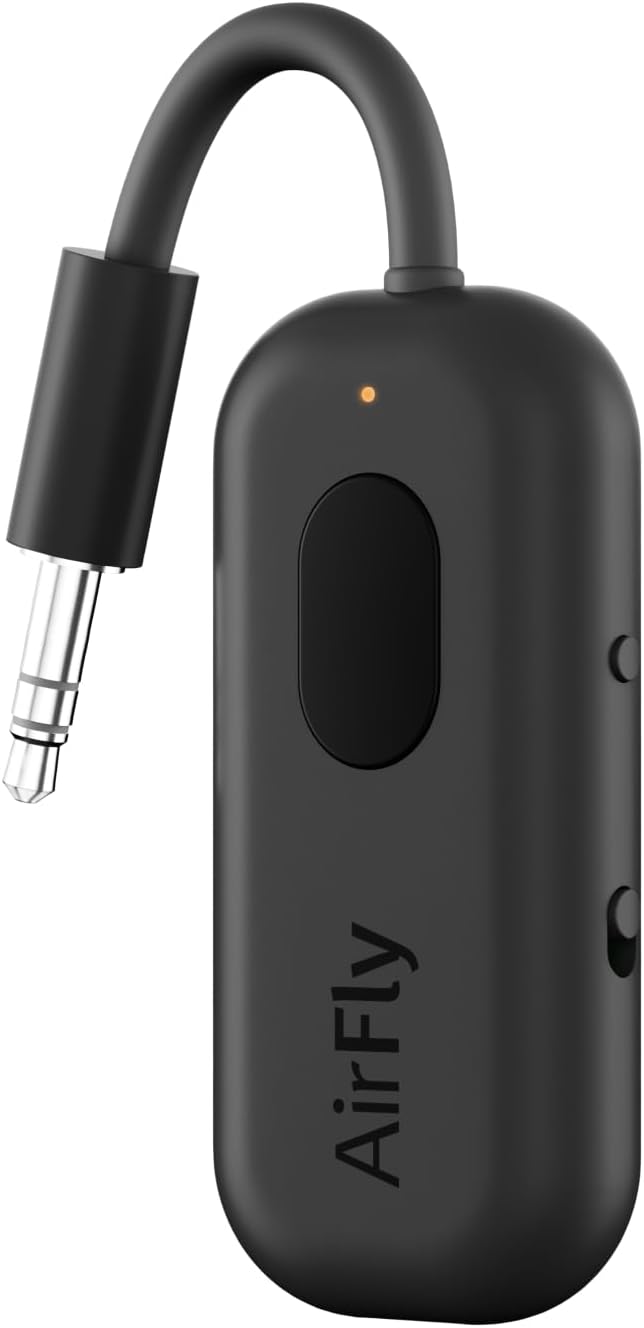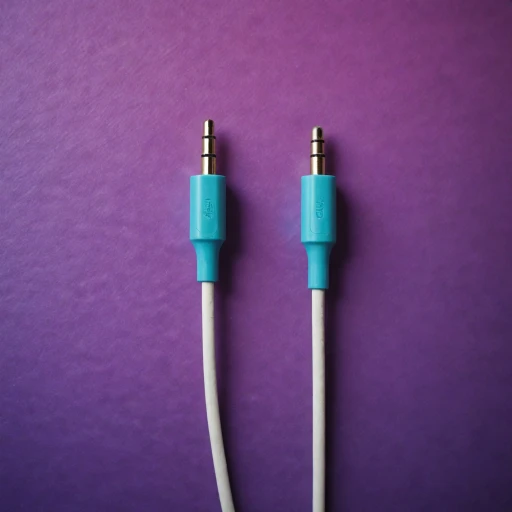
Understanding Noise Canceling Technology
The Science Behind Noise Reduction
Noise canceling technology, a marvel for avid listeners and travelers alike, has revolutionized how we experience sound. The core principle of this technology is to reduce unwanted ambient sounds by adding a layer of opposite frequency sound waves. Known as active noise cancelation, this process helps to create a serene listening environment, whether you are on a plane, in a bustling café, or simply at home.
Fundamentally, noise canceling headphones use microphones to pick up surrounding noises. These sounds are then analyzed by onboard systems which generate anti-noise signals. The anti-noise effectively neutralizes incoming sounds, allowing you to enjoy clear audio without raising the volume. This technological breakthrough is crucial for preserving sound quality and enhancing the overall audio experience.
The addition of a headphones adapter can further expand the functionality of these devices. Whether aiming to seamlessly integrate a Bluetooth adapter or a more specialized usb bluetooth transmitter, the choice of an adapter can directly influence the effectiveness of noise canceling features. A crucial factor to consider is ensuring compatibility with your audio setup, allowing for a smooth transition to wireless audio solutions.
In exploring the technology that underpins noise canceling headphones, it’s vital to also understand the role of additional devices, like the bluetooth receiver, that can enhance performance. With the variety of adapters and transmitters available, selecting the best suited for your headphones can make a notable difference in both sound quality and user convenience. Adopting the right technologies will not only facilitate hands-free use but also extend battery life, making your daily routine more efficient.
Benefits of Noise Canceling Headphones
Experience Immersive Sound Quality
Noise canceling headphones are engineered to provide exceptional sound clarity, allowing you to experience audio like never before. By reducing ambient noise, these headphones enable users to focus on their music or calls without distractions, enhancing sound quality and immersion.
Hands-Free Convenience on the Go
When paired with a bluetooth aux adapter, noise canceling headphones offer hands-free convenience, making them perfect for use while driving or during everyday tasks. Connect a bluetooth receiver to your car's audio system, and you'll be able to stream music wirelessly from your phone, enjoying seamless transition between calls and audio playback.
Wireless Freedom and Versatility
One of the advantages of modern noise canceling headphones is their wireless capability. Whether you're listening through a bluetooth transmitter receiver or a usb bluetooth device, these headphones eliminate the hassle of tangled wires, providing freedom and ease of movement. You can enjoy high-quality audio wherever you are without compromising on sound performance.
Long Battery Life for Prolonged Use
The best bluetooth headphones come with robust battery life, allowing you to enjoy hours of uninterrupted music. This feature is crucial for long commutes or travel, ensuring that your audio receiver remains active even on longer journeys. Look for headphones with quick charging options to top-up your battery in no time.
Ultimately, the benefits of noise canceling headphones combined with a well-chosen bluetooth aux adapter make them a valuable asset for any audio enthusiast seeking a hands-free, immersive, and high-quality listening experience.
Challenges in Noise Canceling Headphones
Overcoming Potential Setbacks
While noise canceling headphones offer a luxurious escape into the world of high-fidelity audio, they come with their own set of challenges. One common concern is the sound quality in certain environments. Factors such as slamming car doors or the drone of an airplane may sometimes be imperceptible, or inversely, cause interference. Similarly, the best models can sport a hefty price tag that might be prohibitive for budget-conscious consumers.
When it comes to practical integration, using these audio devices with various bluetooth adapters or transmitter receivers can introduce compatibility issues. While a usb bluetooth adapter or a bluetooth aux adapter could indeed improve versatility, any mismatch in functionality may affect overall sound performance negatively.
The longevity of the headphones and associated battery life is another factor to consider. Long durations of wireless audio playback on cross-country road trips or during busy workdays can drain batteries quickly, potentially interrupting the flow of your favorite music.
Evaluating the hands free capabilities, especially when employed together with a car adapter or a bluetooth car system, showcases the complex dance between functionality and compatibility.
For those who truly wish to enhance their experience, combining reliable noise canceling headphones with effective setup companions can undoubtedly conquer most audio challenges. This isn’t just about addressing immediate needs; it's about laying the groundwork for a seamless wireless audio interaction for the future.
Integrating Bluetooth Aux Adapters
Integrating Bluetooth Technology for Seamless Audio Experience
Integrating Bluetooth technology into your noise canceling headphones can significantly enhance your audio experience by providing a seamless, wireless connection. With features like wireless audio transmission, you can easily enjoy music from different devices like your phone or laptop. Whether you are connecting in a car or at home, the convenience of wireless audio cannot be overstated.
When considering a Bluetooth adapter for your headphones, it is essential to understand the options available:
- Bluetooth transmitter and receiver: These devices act as a bridge, transmitting sound to your headphones. They can either send or receive audio signals, depending on their mode.
- USB Bluetooth adapter: This type of adapter connects through the USB port, providing a quick solution for PCs or devices that lack Bluetooth capability natively.
- Aux Bluetooth adapters: Perfect for connecting headphones in older stereo systems or cars, allowing you to convert an aux input into a wireless connection.
When selecting the best Bluetooth aux adapter, factors such as sound quality, price, and hands-free capability should be considered. A quality audio receiver ensures that the sound remains clear and the connection stable, providing an uninterrupted listening experience when you're on the go or at home.
Consider the battery life and whether the Bluetooth adapter offers any free shipping deals when purchasing online. A reliable adapter with a longer battery life can enhance your use of noise canceling headphones by ensuring they remain functional throughout long travel periods or extended listening sessions.
Incorporating a Bluetooth aux adapter into your setup can improve the overall performance of your noise canceling headphones, offering you the flexibility to connect across multiple devices effortlessly, improving the way you experience audio in different environments.
Choosing the Right Bluetooth Aux Adapter
Factors to Consider When Choosing a Bluetooth Aux Adapter
When selecting a Bluetooth aux adapter, it's essential to take into account several factors that ensure you achieve the optimal audio experience. Here's a closer look at what you should be considering:- Compatibility: Ensure that the Bluetooth receiver or transmitter you're eyeing is compatible with your device, whether it's your car, headphones, or home stereo system. Some adapters also come with a USB connection, which can be useful for additional connectivity options.
- Sound Quality: Audio quality is paramount, especially if you're keen on maintaining the fidelity of your music. Look for adapters that support high-fidelity sound transmission for the best experience.
- Battery Life: If you opt for a wireless Bluetooth transmitter receiver, battery longevity is crucial, particularly if you plan to use the adapter for long commutes or road trips. Some models offer extended battery life or quick charging features.
- Price and Features: With varying price points, focus on the features that align with your needs. You might prioritize aspects like hands-free calling capabilities, ease of setup, or even free shipping options.
- Portability: If you're frequently on the move, a compact and lightweight adapter becomes a necessity. Consider how easily the adapter can fit into your lifestyle.
- Ease of Use: User-friendly interfaces make pairing your devices hassle-free. Many options on the market offer straightforward setup processes or include additional functionalities like a transmitter and receiver mode switch for versatility.
- Special Features: Some Bluetooth audio adapters come with additional features such as built-in microphone for hands-free calls or multi-pairing capabilities, which can significantly enhance utility and convenience when switching between devices.

